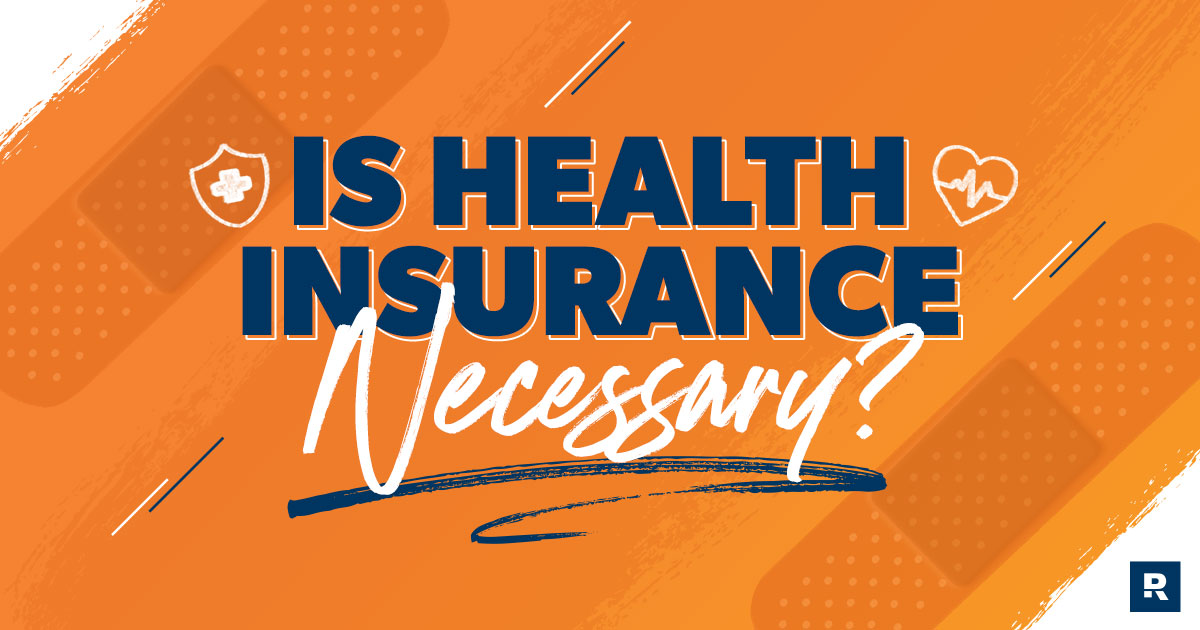Do I Really Need Health Insurance?
6 Min Read | Mar 18, 2024

We’ve all heard the horror stories—people we know (or maybe only heard of) who go into the hospital and leave with mountains of medical bills. If you don’t have health insurance, those stories can sure get you thinking, Do I need health insurance?
The answer—yes! Health insurance has a reputation for being expensive and confusing, but it can also be the only thing standing between you and financial disaster if you ever need medical care. And, oddly enough, health insurance can also be good for your health.
Let’s take a closer look at how health insurance reduces your financial and medical risk.
How Health Insurance Reduces Risk
First, let's go over the potential damage that going without health insurance could cause to your bank account and how health insurance can help you avoid that financial disaster.
Your Money
While we all know health care costs have skyrocketed, millions of people still go uninsured (that’s probably because health insurance costs have skyrocketed too). The U.S. Department of Health and Human Services (HHS) says 30 million U.S. residents did not have health insurance in the first half of 2020.1 Those folks are taking on a lot of risk!
If you have a medical emergency (they’re more common than most people think), and you’re uninsured, you’re taking on the unnecessary financial risk of having to pay potentially enormous medical bills out of your own pocket.
Even treatment for a sprained ankle including doctor visits, X-rays, MRI, medication, medical devices (crutches, brace, etc.) and physical therapy can set you back thousands of dollars.
And if it’s a major medical issue like injuries from a serious car accident or a life-threatening illness, we’re talking about hundreds of thousands of dollars of medical debt.
For most people, that’s a devastating financial setback. Health insurance can transfer the risk of medical expenses like these to the insurance company—protecting you from medical bills you can’t afford.
Your Health
Going without health insurance is not only risky, it can have medical consequences too. The National Center for Biotechnology Information says uninsured people are less likely to have a regular source of medical care, less likely to see a physician even when they’re very sick, and more likely to delay routine care due to concerns about cost.2
Regular medical care starts with annual checkups that can prevent serious illness before it happens. If your primary doctor spots a problem with your health, they’ll recommend additional tests like a mammogram or a blood test to get to the bottom of it.
Since most people who don’t have health insurance made that decision based on money issues instead of what’s best for their health, they usually don’t have annual checkups for the same reason—it’s too expensive. But skipping routine care can end up being even more expensive than your insurance premiums, especially if you have serious health issues that aren’t caught early.
Think of it like car maintenance. Regularly changing your car’s oil can be a pain, but it’s a must to prevent a major breakdown down the road.
The same is true for maintaining your health. Annual checkups aren’t fun, but they can identify health issues that can be treated now before they become major medical problems.
People who are uninsured also put off medical treatment when they’re sick—again, to try and save money. Let’s say you’re pretty sure you have hay fever because you sneeze nonstop. But then you notice you’re sneezing all the time, not just during hay fever season.
You know you should get your symptoms checked out by a doctor, but you keep putting it off because you don’t have insurance and you know a doctor visit will cost money. Eventually, your symptoms get so bad that you go to the emergency room. After a bunch of tests, you find out that you have a sinus tumor that requires major surgery. Not the ending anyone would hope for, right?
If you’d been insured and gone to the doctor in the first place, you could have avoided an expensive visit to the ER and major surgery. And lots of stress too!
Look, health insurance isn’t mandatory. There’s no law requiring you to buy it. But health insurance is an important part of staying healthy—financially and physically.
Get the health insurance you need from Health Trust Financial today!
When RamseyTrusted partner Health Trust Financial is in your corner, you’ll have peace of mind knowing you have the right health insurance that won’t break the bank.
How to Afford Health Insurance
Here's the good news. There are some great ways to save money on the cost of your health insurance. We put together some useful tips below.
Employer-Sponsored Health Insurance
If your employer offers a health care plan at work, it can be an excellent way to lower your health insurance cost. Many employers even pay a portion of your premium.
But there are other ways to save on your health insurance cost too. The best way to find out which option is the most cost-effective for you is to connect with a health insurance professional (more on that in a minute).
Low-Cost Insurance Plan
Most health insurance providers offer low-cost plans for healthy people. They’re called “catastrophic” health plans and are designed to protect you from worst-case scenarios. These catastrophic health plans (aka health insurance for healthy people) usually come with a high deductible to keep your premium low.
Health Savings Account
Another excellent way to save money on your health insurance is by using a Health Savings Account (HSA). An HSA is a type of savings account that lets you save pretax dollars to help pay for qualified medical expenses, and it works hand in hand with a high-deductible health plan.
Typically, you can't use HSA dollars to pay your health insurance premium, but you can use it to pay for things like your health insurance deductible, copayments and more.
In addition to the savings and low-cost advantages, the health insurance application process has gotten much easier too. You can find out which plan works for you and how to save money in no time at all.
Find the Best Health Insurance Plan for You
Our advice? Do not go without health insurance. (And if health insurance turns out not to be the best option, you can find other options to get you the coverage you need.) To make sure you get the best health insurance plan for your situation, we recommend connecting with an insurance professional through Health Trust Financial. They've been endorsed by Ramsey for over 20 years. Our friends at Health Trust Financial have a team of independent agents ready to help you shop around to get the best insurance at the best price!
Next Steps
- Learn more about different health insurance plans and how to compare them.
- Find out why an HSA might be perfect for you.
- Get in touch with Health Trust Financial and talk to an agent today.


